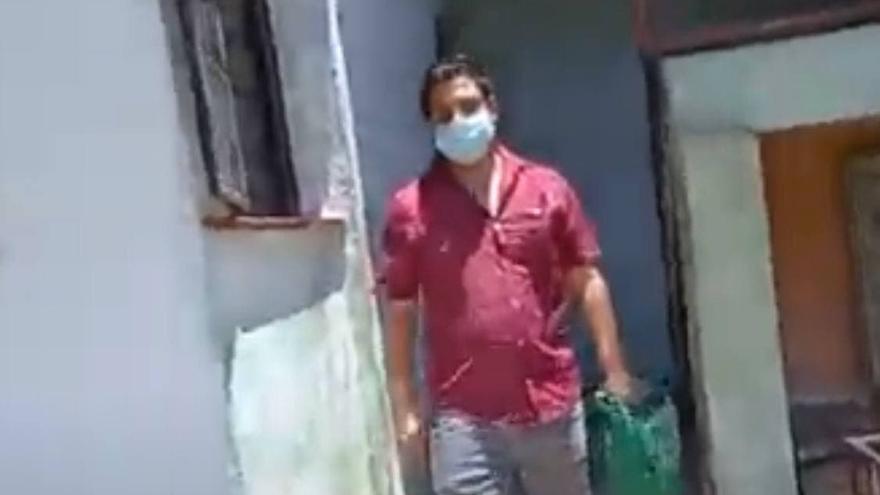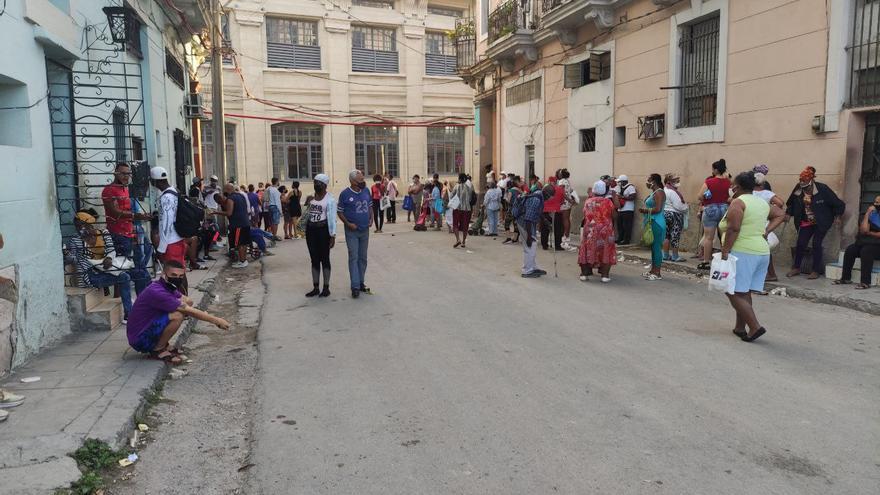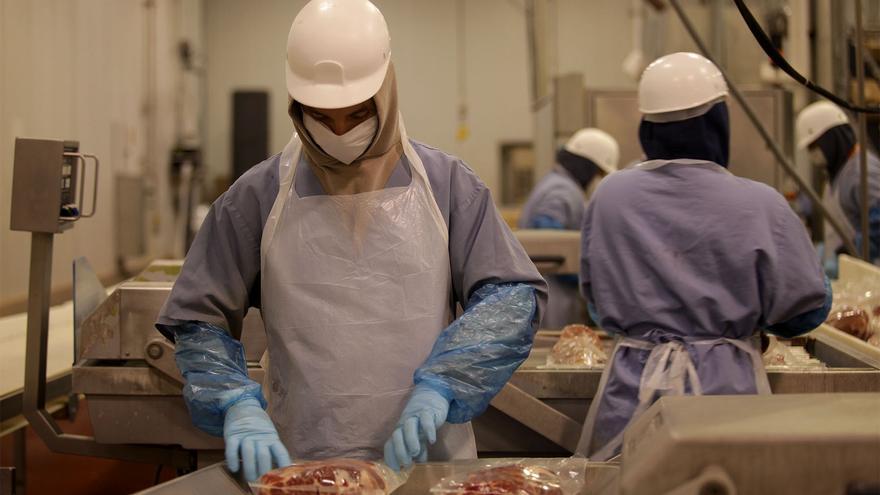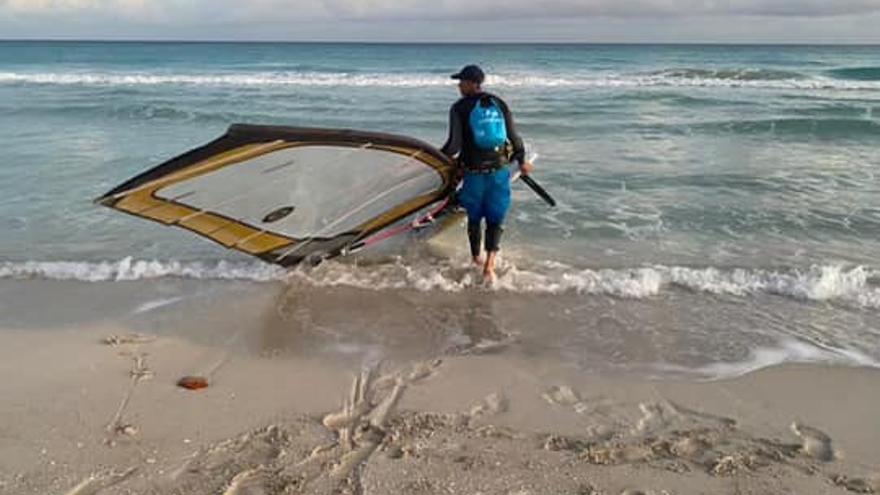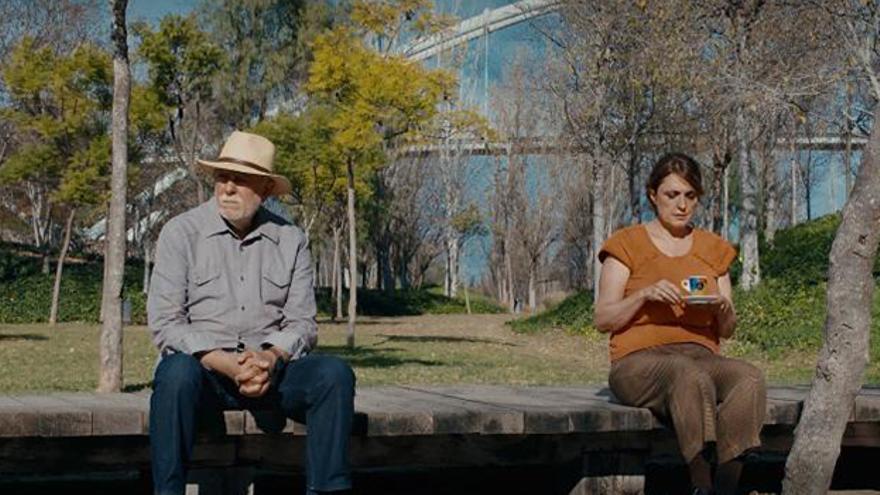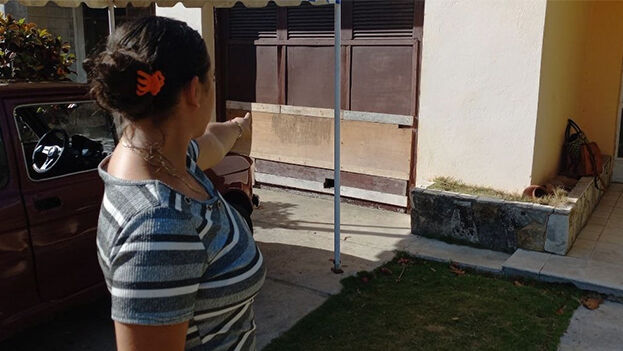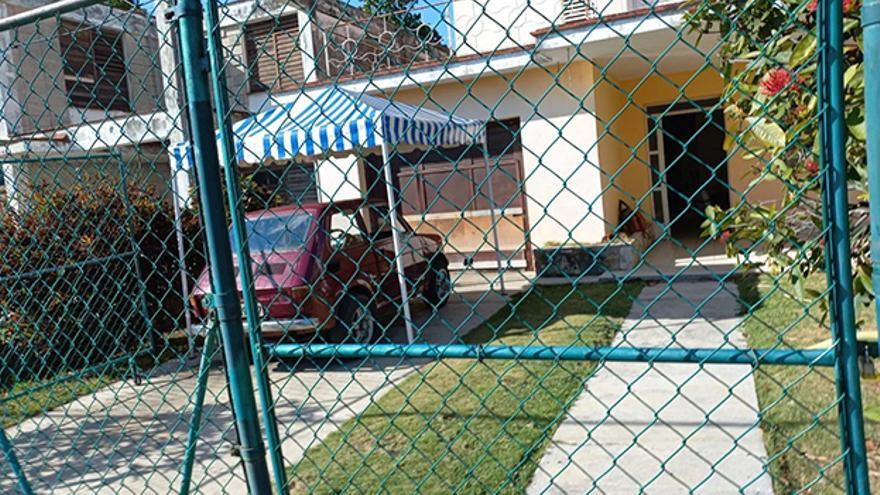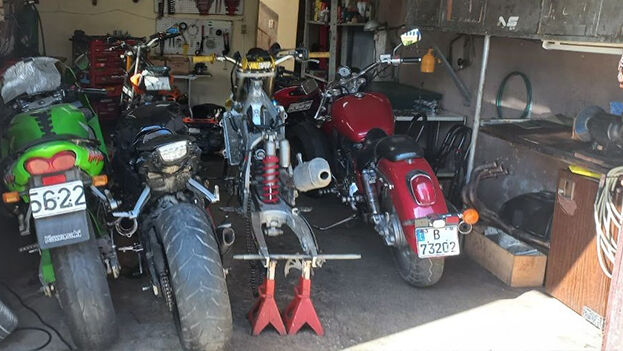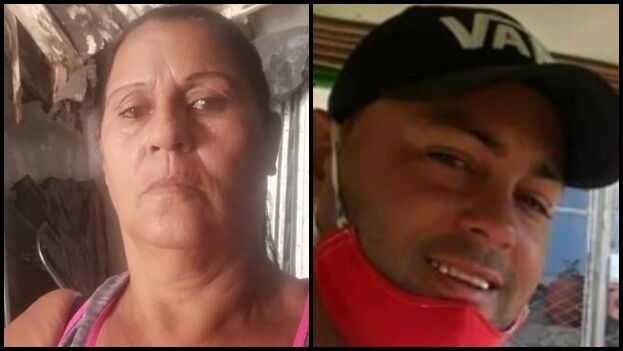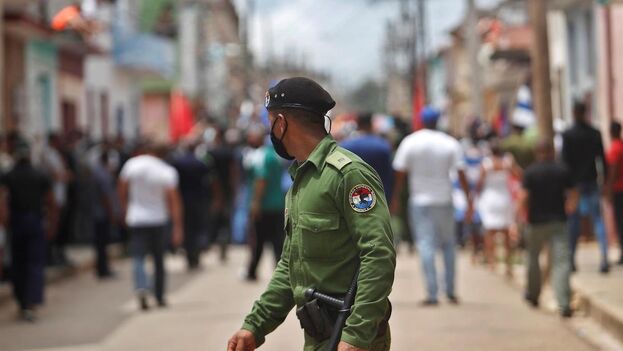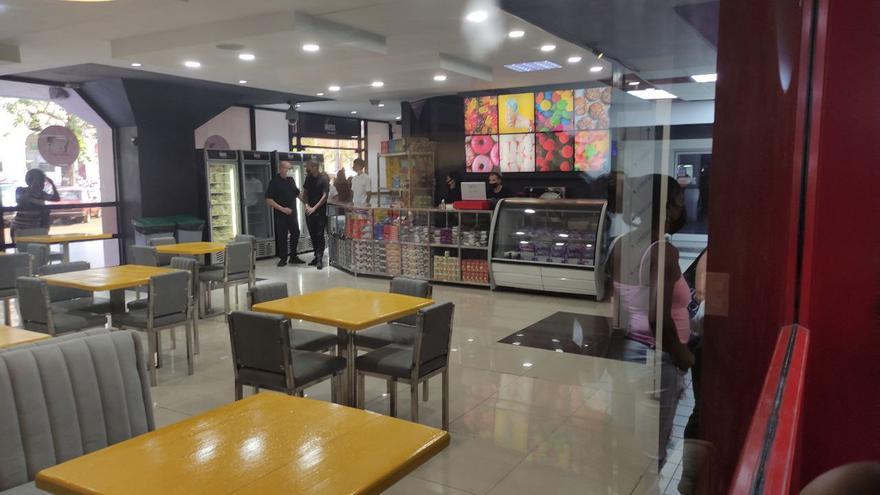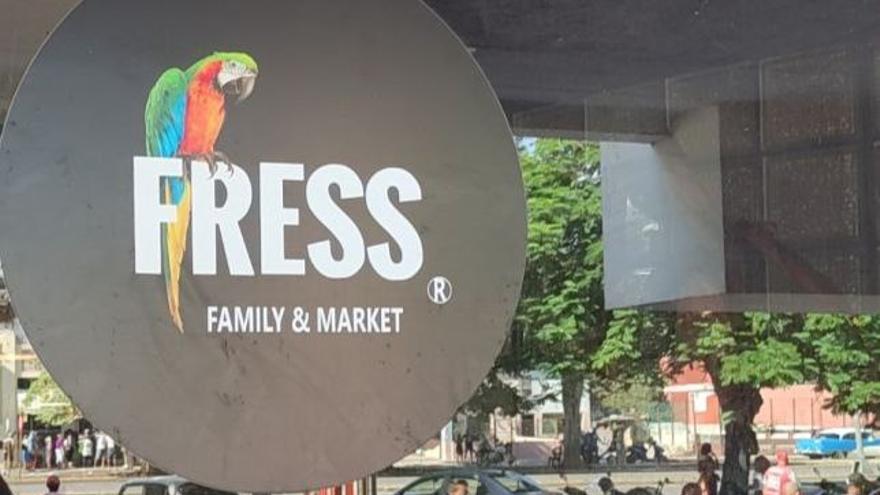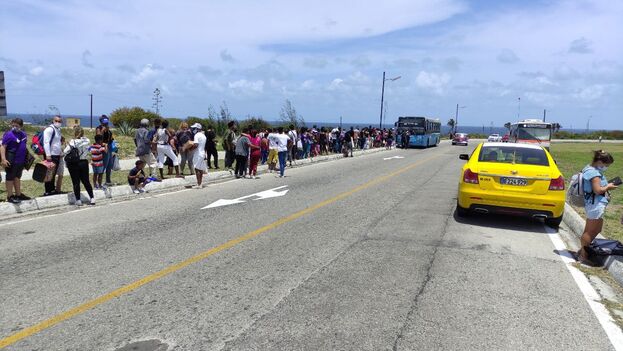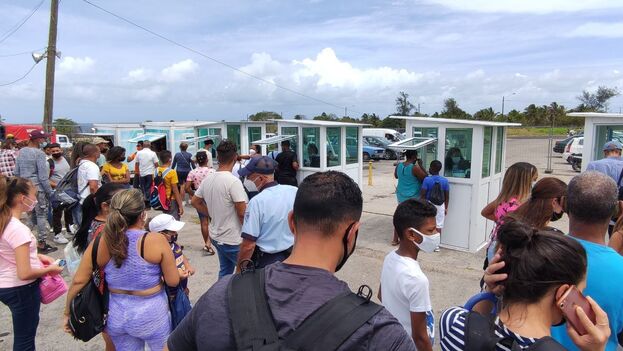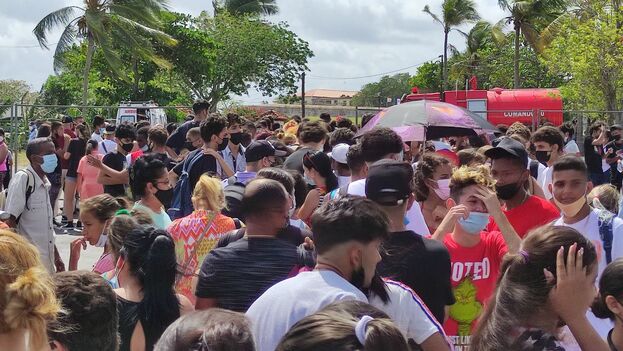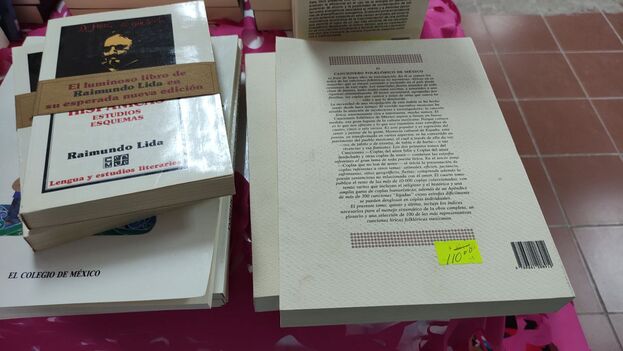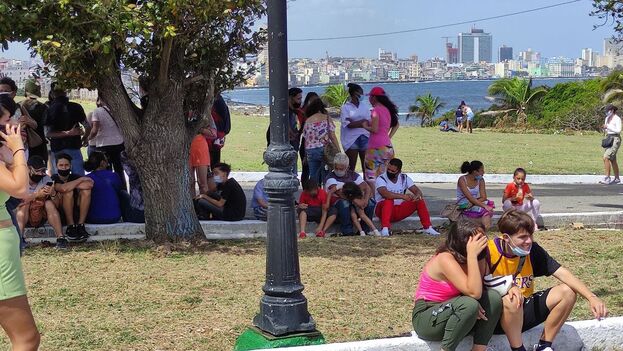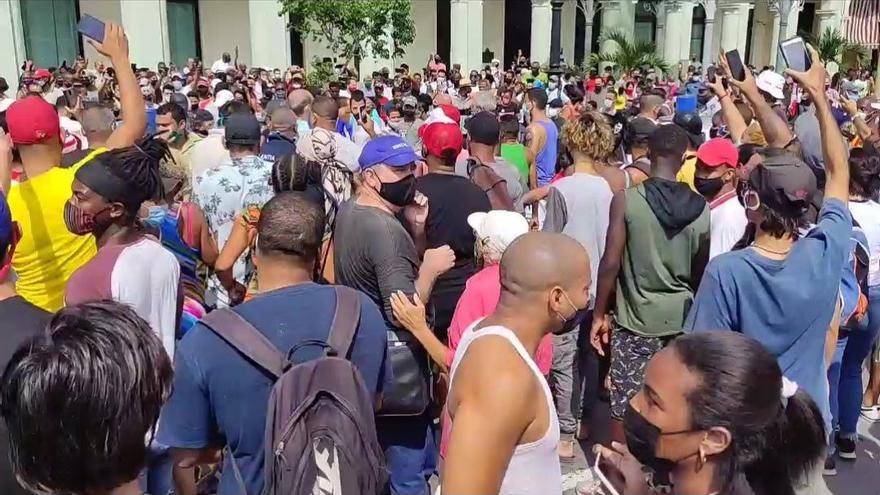The 20-year-old mother’s, Yaquelín Cruz García, would like to turn back time and return to Monday, July 12, the day of the protests. That day she was at work, in the kitchen of El Trigal, and she began to see through her mobile phone the images of the demonstrations in her neighborhood in the municipality of Arroyo Naranjo. Her heart skipped a beat and she had a bad feeling.
“The man replied that people had thrown themselves into the street and that the police were arriving. When Dariel began to climb towards La Lomita, the Avispas Negras [Black Wasps] (special troops of the Armed Forces) were already arriving.” When the young man approached the crowd they say he looked both ways and joined the protesters. continue reading
From another part of the street, some government supporters had already begun to throw stones, according to statements collected by this newspaper from several witnesses at the time. Some of those protesting responded by throwing what they found at hand. “That’s when he also threw stones. That was the only thing he did,” acknowledges the mother.
“In my work I began to see the videos of the protests through my mobile and you could see that the people of La Güinera were walking very calmly but, at that moment, the integrados [government supporters] left and began with the discord. Those who protested said that they were going for the Capri, but not to take over the station. They went with nothing in their hands.”
“They were shouting ‘freedom!’ but they did not carry stones or sticks, they went peacefully. When they met in La Lomita and ‘the revolutionaries’ came out, then they began to argue. As those who protested said they were going to Capri, now they have made up that they were going to take the station. That’s a lie, they were going to shout their slogans and demand freedom but not to take anything.”
“Who would think that with empty hands someone would take over a police station?” the woman questions. “I know that my son threw stones, but for doing only that they cannot sentence him to that number of years. The distance was great from where they were to where the others were and the boys did not harm anyone, in fact they were defending themselves.”
The most serious evidence was the account of the residents in the neighborhood. “The victims and the most harmed were our boys. They even killed a young man who now the police want to present as a bandit, but that is a lie. They say that all the young people here are bad and criminals, but that is also a lie.”
Dariel Cruz’s story is similar to that of many in the neighborhood: “He was born and raised in La Güinera, there are four brothers. I worked and sometimes I had to pay for them to be taken care of while I was at work. When I had to rest, then I had to go out to stand in line at the stores to be able to buy things and then resell them, that’s how we survived. It was a tough childhood but I kept the family together.”
The ruling in the case, like so many others of those convicted of those demonstrations, blames the defendants for launching “expletives against the leaders of the State and the Communist Party of Cuba.” Further on, the document describes Cruz as part of those who collected “stones they found on public roads, which they threw at the agents to make them back up.”
The Prosecutor’s Office initially requested 15 years in prison for El Bolo, but perhaps the international pressure, which was unleashed on the first two trials against the La Güinera protesters, contributed to their being reduced to eight years in prison, more than a third of the time that they have spent. lived up to now. If he serves that time in jail, his daughter, three years old now, will have already turned 11 when he is released.
“In the first two trials they gave the sentences immediately but not in my son’s,” recalls the mother. “His trial lasted two days and everything was seen to have been prepared in advance. They showed a piece of a video filmed here in La Güinera, but they were general images. No details were seen. A group of boys was seen throwing stones, But nothing more.”
“The lawyers were able to speak only up to a certain point and there were some who asked questions but the Prosecutor’s Office never answered them,” she complains. “Even one of the defenders was told to shut up.” The woman adds that “they showed the boys as if they had been very violent, as if they had burned things. In the trial they told stories that never happened here.”
Cruz recognizes the complexity of the place but thinks that the authorities exaggerated with the accusations. “In La Güinera you live with many difficulties, it is a very hot neighborhood with many bad things but the police do not see that. They sell many bad substances for the boys and everything is very hectic. You have to be fierce in these streets to survive, but there are also a lot of good people.”
Cruz’s testimony reiterates what other mothers say: “In the neighborhood it is said that ‘they’ themselves started throwing stones. The neighbors say that it may have been the plainclothes policemen themselves who got into the crowd. and they started the violence. Several people have told me that they saw that it was the police themselves that started the stone throwing.”
“They were also the first to strike, the Black Wasps came with their shields and their sticks. They were crazy to strike, they moved through the streets and grabbed anyone and told them to show them their hands. If they had dirty hands, right there they beat them up and arrested them,” explains the woman.
“Many people just filmed and they were also taken to jail, but my son, who was only 19 at the time, was not jailed that day.” Several agents from the Technical Investigative Department (DTI) of the Ministry of the Interior went looking for El Bolo at his house on July 16. “Thank God they didn’t catch him during the demonstration because that day they beat everyone they arrested a lot,” she says somewhat relieved.
However, the ordeal was just beginning. “He is crazy to get out of jail because prison is not easy, especially for those who have never been in prison. He had no criminal record… He tells me that you have to be strong inside because otherwise ‘the train will pass you by’. He is waiting for the result of the appeal to come down to see if they send him to a work camp.”
“In that same Jovenes de Occidente prison there are many boys from La Güinera. They had to transfer El Bolo to Company 15, where there are inmates from the Diez de Octubre municipality, because he has had two problems. First, a whole company of prisoners beat up him and another boy. Later, another prisoner stabbed him in the back.”
After the transfer, “now my son can call more often. If he doesn’t call me I get very worried because I know that when they have a problem there they put the boys in a punishment cell and they take away the right to make phone calls.” If the phone doesn’t ring for several days, the woman immediately thinks “something bad happened.”
But Yaquelín Cruz does not lose hope despite the harsh reality that surrounds her. “I think he will be out of jail soon. There are people who have been imprisoned and they tell me no, that they will have to be there until the last day of their sentences. They tell me about opponents like Orlando Zapata, who died in jail, but I have faith that my son will not have to serve that number of years.”
____________
COLLABORATE WITH OUR WORK: The 14ymedio team is committed to practicing serious journalism that reflects Cuba’s reality in all its depth. Thank you for joining us on this long journey. We invite you to continue supporting us by becoming a member of 14ymedio now. Together we can continue transforming journalism in Cuba.
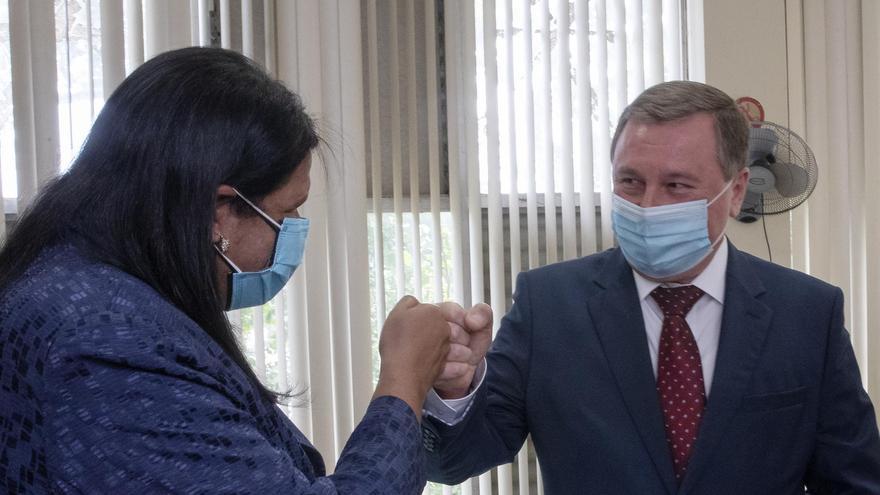
![]() EFE (via 14ymedio), Havana, 21 April 2022 — On Thursday, Cuba thanked the Russian government for a donation of 19,526 tons of wheat , which reached the island a month late due to Western sanctions on Moscow for the invasion of Ukraine.
EFE (via 14ymedio), Havana, 21 April 2022 — On Thursday, Cuba thanked the Russian government for a donation of 19,526 tons of wheat , which reached the island a month late due to Western sanctions on Moscow for the invasion of Ukraine.

